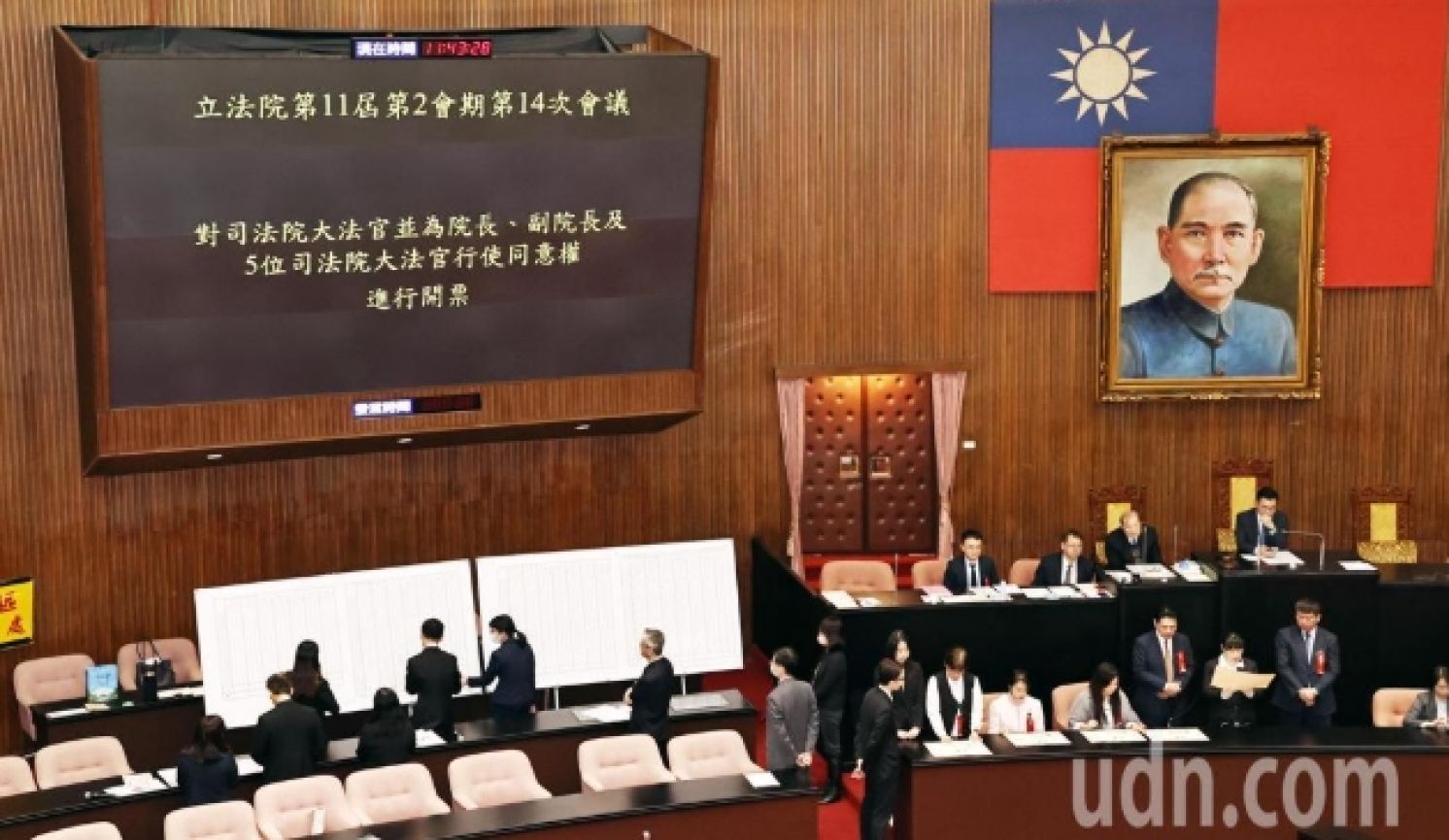
Rejecting Justice Appointment, Self-Denying DPP Undermines Presidential Authority
United Daily News Commentary, December 20, 2024
Faced with the opposition Kuomintang (KMT) and Taiwan People’s Party’s (TPP) majority in the Legislative Yuan, President Lai Ching-te's nominations of seven grand justices, including candidates for president and vice president of the Judicial Yuan, were all rejected. While this outcome was expected, what was surprising was that the ruling Democratic Progressive Party (DPP) failed to support Liu Ching-yi, the nominated constitutional court justice. Although the surface reason was the professor’s strong anti-death penalty stance and her past criticisms of the DPP, deeper political maneuvers were likely at play. The DPP feared Liu, if confirmed, would be uncontrollable, thus leading to the unprecedented situation of the ruling party caucus in the Legislative Yuan opposing the president’s nominee.
Before the Legislative Yuan voted on whether to confirm the nominations for grand justices, discussions within the KMT and TPP centered on whether to reject all nominees. The KMT decided on a full blockade, while the TPP chose to support only Liu. Theoretically, Liu was the sole nominee who could be confirmed.
Unexpectedly, the DPP caucus voted against Liu, ensuring her rejection and marking a historic instance of the ruling party’s legislature voting against a president’s nominee. Liu’s political stance, particularly her critiques of the DPP, especially during the controversies over former President Tsai Ing-wen’s dissertation and Hsinchu Mayor Lin Chih-chien’s plagiarism scandal, led her to alienate many in the DPP.
While these past controversies contributed to the opposition, the real concern for the DPP was that they feared Liu, once confirmed, would not be under their control, particularly in constitutional matters.
With the TPP’s supporting Liu, she became the likely sole nominee to pass. Under the new threshold for constitutional court nominations, with just one grand justice confirmed, Liu’s confirmation would not significantly impact the court’s function. However, if a different nominee had been elected, the DPP could have moved forward without much resistance. But with Liu, the DPP feared her becoming an uncontrollable force on the court, especially as more bills in the legislature could fail to gain DPP support.
The TPP’s strategy, by proposing to support only one nominee, successfully put the DPP in a difficult position. DPP rejection of Liu not only exposed internal divisions but also weakened President Lai’s authority. The DPP’s forced self-denial in this case led to a significant defeat.
Although not a regular occurrence, the use of the veto power in judicial nominations shows that, in the current fractured political climate, anything is possible. The TPP emerged victorious, positioning itself as a party with its own agenda, while the DPP’s indecisiveness led to a major loss—both externally, in blocking the judicial nominees, and internally, as it undermined itself. The KMT maintained its stance, achieving neither a win nor a loss, while the DPP’s defeat was a blow to both its public image and internal cohesion.